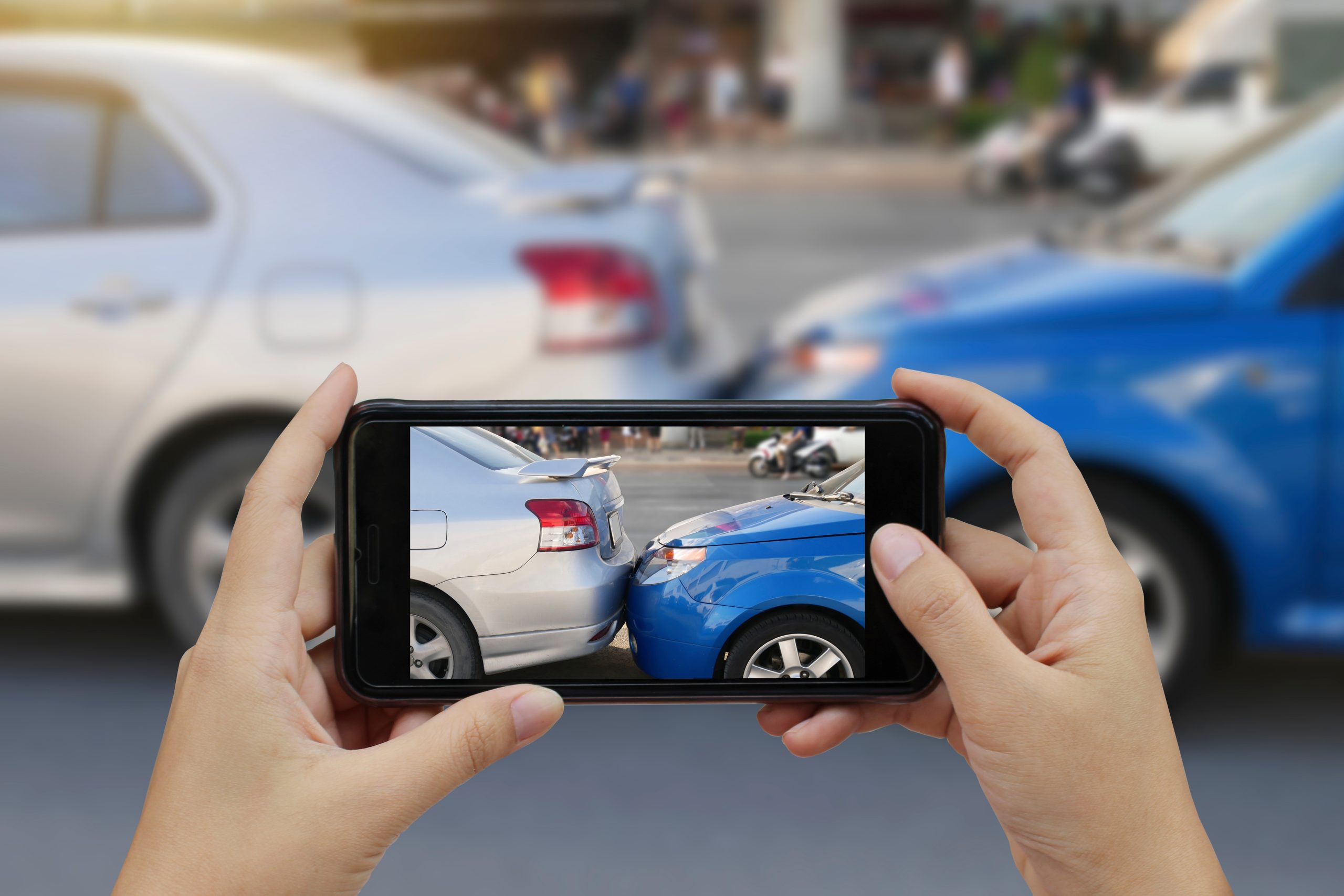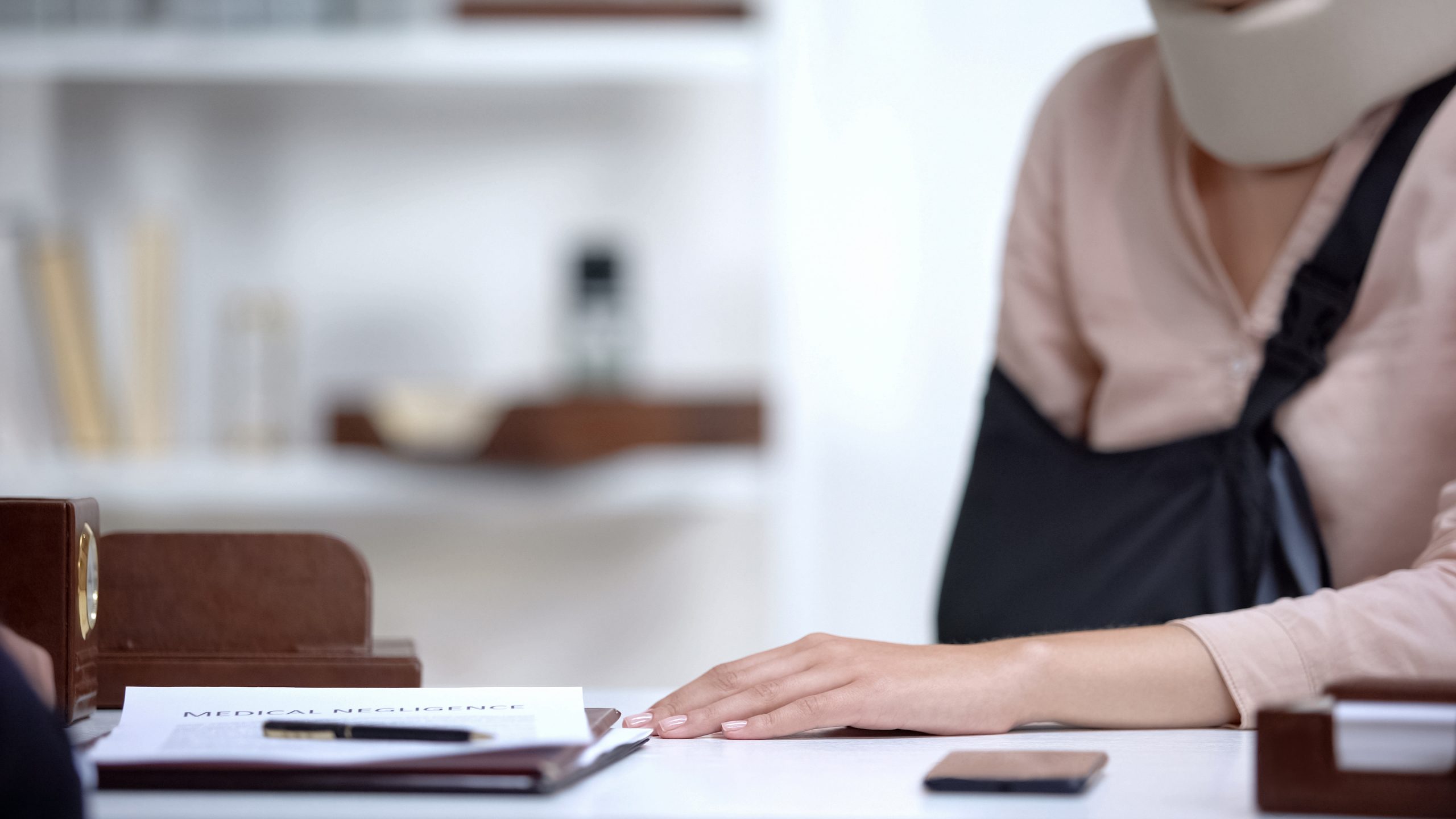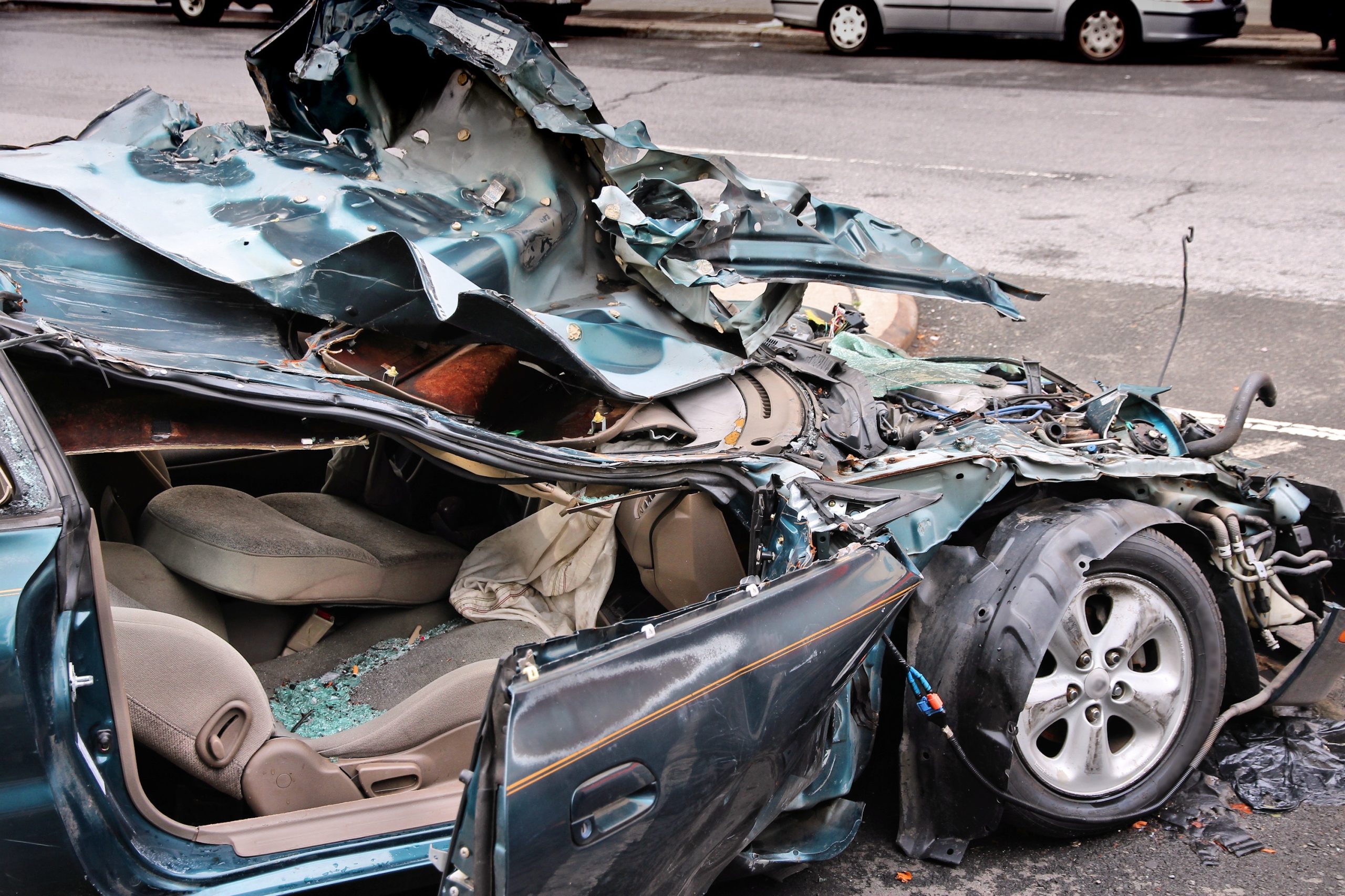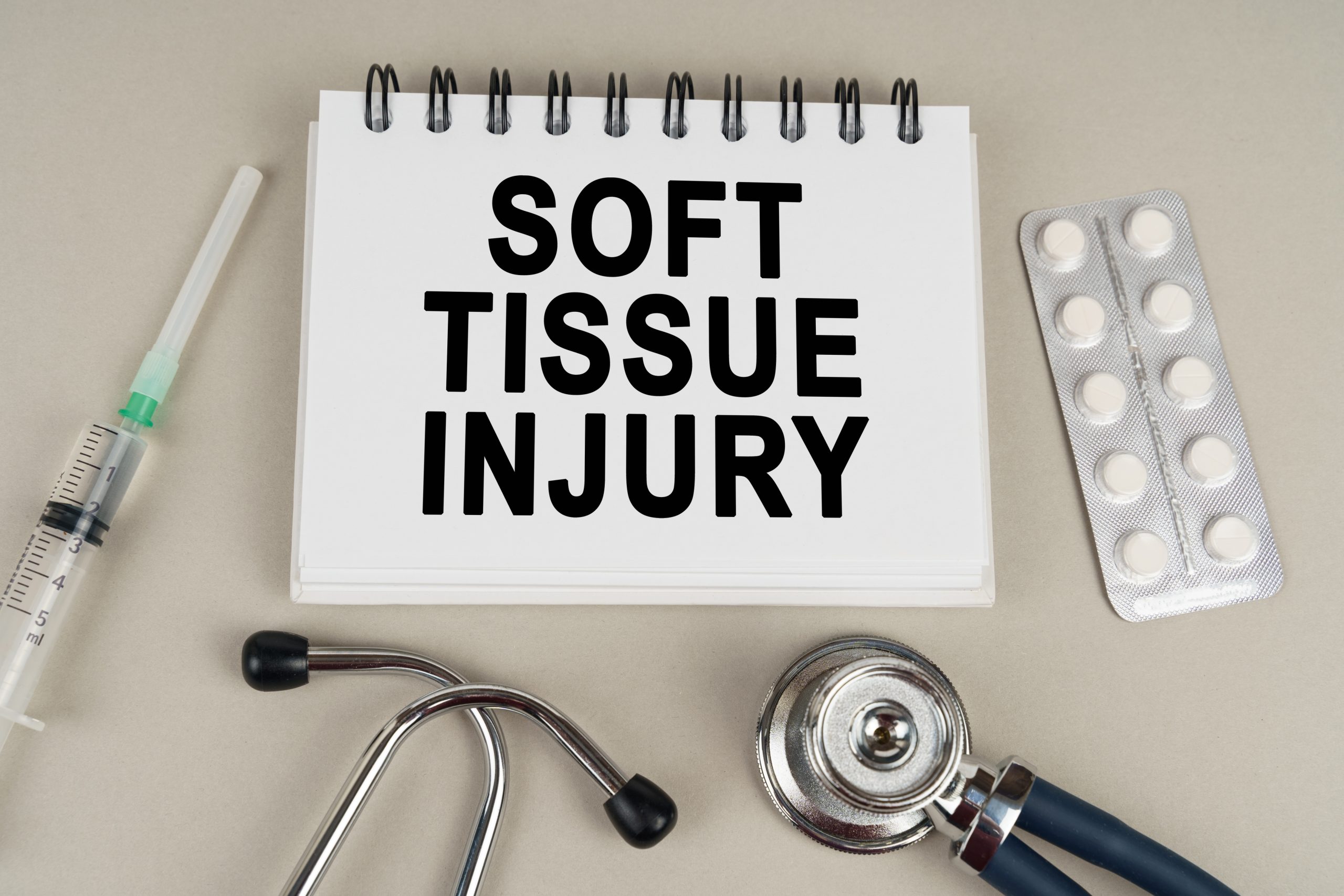If you were recently involved in a car accident at no fault of your own, one of your first questions may be whose insurance company should I call? The short answer is both. Your auto insurance policy may have immediately-accessible coverage, such as Personal Injury Protection benefits or medical expense benefits (depending on the state in which you reside and your specific insurance carrier).. Sometimes, the at-fault party might not have enough insurance to cover the claim. In this scenario, you may be able to access your own auto insurance policy to cover the difference through an uninsured/underinsured motorist claim. Depending on the specific facts and circumstances surrounding your accident, filing a claim with both insurance companies may be a necessity
Should I Call My Insurance Company?
Regardless of who should pay damages after a car crash, you will want to inform your own insurance company of the collision ASAP. There are several key reasons why you should always report accidents to your insurance company, even if they seem minor or even if the other driver has admitted fault and agrees to compensate you. Here is why it is a good idea to always tell your insurer what happened:
- Minor accidents can sometimes turn out to cause serious damage. A driver who promised to pay may not have the money to do so.
- Your insurer can help you to fight to obtain compensation from the at-fault driver’s insurer.
- Your insurer may pay for losses if you live in a no-fault state or if the other motorist has insufficient coverage. If you have uninsured or underinsured motorist coverage, your insurer stands in for the at-fault driver if that motorist cannot pay as required.
If you delay informing your own insurer, you could jeopardize your ability to access the protection the company provides you (usually you should contact them within 24 hours of a crash). This could cause major problems if the responsible party does not provide appropriate compensation post-crash.
Should I Call the Other Person’s Insurance Company?
If the other person hits your car, is clearly at fault (and agrees that it was their fault), and you were harmed in the collision. In this instance, you should file a personal injury claim through the other driver’s insurance company. A personal injury claim will allow you to file a claim against the other driver’s liability coverage to seek financial restitution for your harms and losses. You should still contact your insurance company as well to let them know about the incident and that you are filing a third-party claim. Whether or not your auto insurance will pay for repairs to your vehicle when someone else hits you, depends on the type of coverage you have and the specifics of the accident. If you are found to not be at fault for the accident, then the person who hit you and their insurance company are responsible for paying for the repairs to your vehicle.
Tips When Talking With the Other Driver’s Car Insurance Company
First, always remember that the primary goal of the other driver’s car insurance company is to pay out as little money as possible. The adjuster wants to find evidence that you were at fault for the accident, or that your injuries are minor (or nonexistent).
- Do not discuss how you are feeling, or how bad your injuries might be. Even if talking about the nature and extent of your injuries is a good idea (it is not), it is almost certainly too early to have this kind of discussion. Remember (and remind the adjuster) that some car accident injuries do not show up right away, and minor injuries can turn out to be much more serious than expected.
- Do not make any apologies or statements about your role in the accident. Anything you say to the other driver’s car insurance company can serve as a basis for refusing to pay you anything or reducing the value of your claim.
- Only answer the question asked. Do not volunteer any additional information or agree to have your statement recorded, whether it is over the phone or in writing. In most instances, the purpose of a recorded or written statement is to lock you into a certain version of events, including the extent of your injuries or property damage.
- Do not guess or speculate as to an answer. If you do not know, it is okay to tell the car insurance company that.
- Refer the adjuster to your own car insurance company. If you are asked to provide more than just basic details about the accident, ask the adjuster to get it from your car insurance company, or ask to have a representative from your car insurance company’s adjuster on the line during the call.
Pros of Using My Own Insurance Company
You may feel more confident in the service your insurer provides than the service provided by the other driver’s company. The claims process may also be faster because your company does not have to determine fault before sending your check. If you have rental reimbursement on your policy, you can get a rental car right away.
Cons of Using My Own Insurance Company
You will be out of your deductible money, and there is no guarantee that you will get it back.
Pros of Using the Other Party’s Insurance Company
You do not have to pay your deductible and wait for reimbursement. And if you do not have collision coverage, using the other driver’s insurer is the only way to get your damage covered.
Cons of Using the Other Party’s Insurance Company
If the person who hit your car does not have liability coverage or has limits that do not cover your medical expenses, you may end up filing a claim with your insurer anyway. Uninsured and underinsured motorist coverage would pay for treatment of your injuries in this situation, up to your own UM limits. If the other driver’s insurance will not pay enough to cover your car repairs, you can tap into your collision coverage or uninsured motorist property damage coverage, which could be subject to a deductible.
What if the Other Person Has No Insurance?
If you are involved in an accident with a driver who does not have any car insurance coverage at all, you will likely have to turn to your own car insurance company to help cover your losses. Your best bet is Uninsured Motorist (UIM) coverage, which is usually an add-on protection, depending on the state in which you reside. UIM coverage is only required in a handful of states, while insurance companies are required to offer it to customers by law in most states. But note that UIM coverage usually only applies to your car accident injuries; you will probably need to purchase separate add-on coverage (called “Uninsured Motorist Property Damage Coverage” or something similar) in order to cover vehicle repair/replacement after an accident with an uninsured driver; again, depending on the state in which you reside
Will My Insurance Go Up if Someone Hit Me?
Generally, a no-fault accident will not cause your car insurance rates to increase. This is because the at-fault party’s car insurance provider can typically held responsible for your medical expenses and vehicle repairs, but you must file a claim to hold the other driver accountable. If your insurer does not need to fork out money, your premiums will not go up. In almost every state, a no-fault claim is filed against the auto insurance policy of the driver who is at fault. If you are not responsible for an accident and you file a claim against the at-fault party, it is quite unlikely you will see an increase in your car insurance costs. Even if you must file against your own insurance policy, some insurance companies still will not charge you more because of a non-fault claim. However, if you previously caused an accident or made a claim, your auto insurance rates may go up after a no-fault collision.



